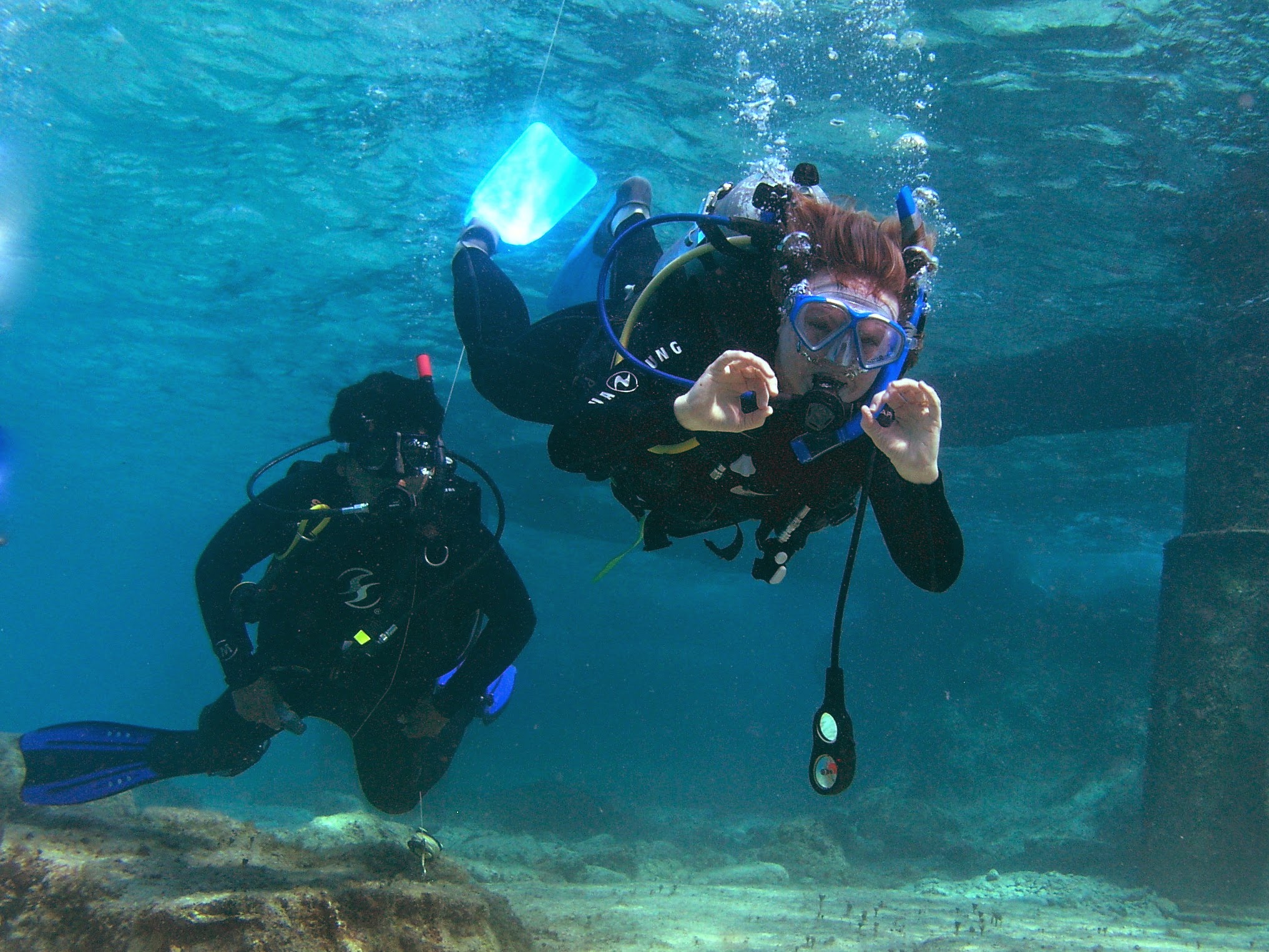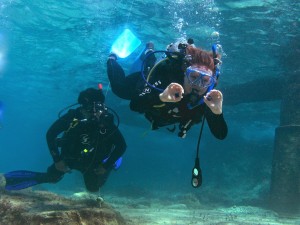
 “Gas” usually produces giggles. We might be talking politely about farts. We might be talking about air, oxygen, bubbles, carbonation or steam. We’re talking about that invisible stuff which surrounds us, which is indispensible to us, yet we don’t even notice it.
“Gas” usually produces giggles. We might be talking politely about farts. We might be talking about air, oxygen, bubbles, carbonation or steam. We’re talking about that invisible stuff which surrounds us, which is indispensible to us, yet we don’t even notice it.
Recently, my son and I took up scuba diving. You must take a training course to learn how to use the equipment necessary to enter into an alternate reality. This includes reading gauges, compasses and computers, interpreting them, and sometimes changing your behavior based on their data.
To enjoy this alternate reality, where you can float, fly, and breathe underwater, you must follow some rules. The number one rule: Don’t hold your breath. For me, the number two rule is: Be prepared to come back to the surface when you still have air reserves; never dive on “empty”.

That sounds reasonable but so many factors influence how much air you consume. A typical recreational dive can last 45 minutes. 45 minutes of bliss, as you breathe in and out regularly, being massaged by the weight of the water on your back, while seeing bright, beautiful colors of flora and fauna. Anything that causes you to breathe faster means you use up air more quickly. You might only be able to dive for 20 minutes if there are extenuating conditions: how deep you dive; dealing with your mask filling up with water; not being sure of your direction; or poor visibility caused by currents or other divers kicking up sand.
To my surprise, on a recent dive, I was the one who needed to come up early because I was running out of air. While I didn’t notice that I was doing some “heavy breathing”, I was nervous as I lost track of my dive buddy temporarily. I was uncomfortable in a different diving suit. I was colder than I expected to be. And there was a lot of sand getting kicked up in the current which reduced my visibility.
I didn’t just feel anxiety that my tank was running low quickly — I felt shame. I recognized that the whole group in my diving class might have to end the dive early because I needed to resurface. I was also embarrassed that I wasn’t as “good” a diver as the other people who had twice as much air left in their tanks as I did. I wondered if I had some secret flaw that would make it impossible for me to be as good as they were. I wondered if in fact I shouldn’t be involved with diving at all, even though I absolutely loved the first dozen dives I had done.
It occurred to me that this is how my students with learning disabilities feel in the classroom. They are willingly engaging in the same task as their peers, yet they are so “bad” at it that they are dragging the others down if the teacher has to stop everything to explain things to them… AGAIN. They may simply be inexperienced and will get better with more practice. Or, they might be missing some crucial ability and never be able to keep up. They may be extra sensitive to noise, visibility, or anxiety, causing them to run out of their reserves a lot sooner than their peers.
But unlike me, they are not able to resurface.Their gauge reads 500 and they are alarmed. They are stuck there in the room, under the pressure of the scrutiny of their teacher and their peers, stuck with their negative feelings, stuck with their shame. Eventually, they act out. They get loud; they try to change the focus of the activity; they announce that the activity is dumb or boring. They are uncomfortable and their needs are not being met. They want to follow along but they can’t.
They are suffering from cognitive overload.
There is an affirming framework for dealing with times of discomfort, described by therapists at the Center for Nonviolent Communication: identifying your needs, and determining what to do if they are not being met. The main categories of needs are Connection, Physical Well-Being, Honesty, Play, Peace, Autonomy and Meaning. There are many types of needs within these categories, such as acceptance, appreciation, belonging, companionship, respect/self-respect, security, challenge, competence, creativity, purpose, trust and understanding, that can all be met in a classroom… These abstract notions, like air, are invisible yet indispensible.
When not met, the classroom becomes a place where these needs are violated, or “ruptured,” to think of them in terms of something that can be healed. The process is to identify the feelings in the body, match them to the needs that must be met, and then set about taking some actions to regain the status of Connection, Meaning, etc.
In the case of gaining skills to perform academically, there is often another element: self-awareness which leads to self-acceptance. If the math facts are still not memorized after working hard at memorizing them, it’s time for the student to ask for a different way of completing the math problem. It may not feel good to “out” yourself as being less capable, but it is truly worse to keep silent as you run out of air in your tank. Luckily, many skills do improve as we get older; hopefully, we discover our talents along with our weaknesses, and find Connection, Meaning and Autonomy by developing those. They can fill up our tanks and keep us going while we face challenges and impediments, with enough of a reserve to appreciate the beauty and joy that suffuses our lives.
